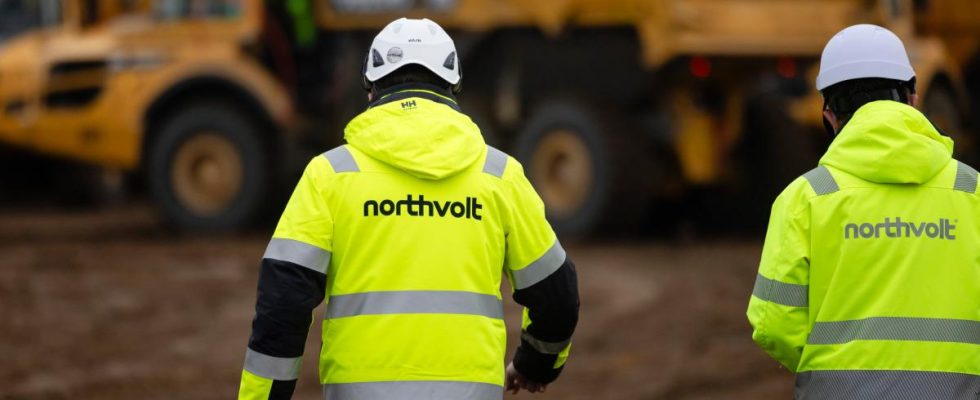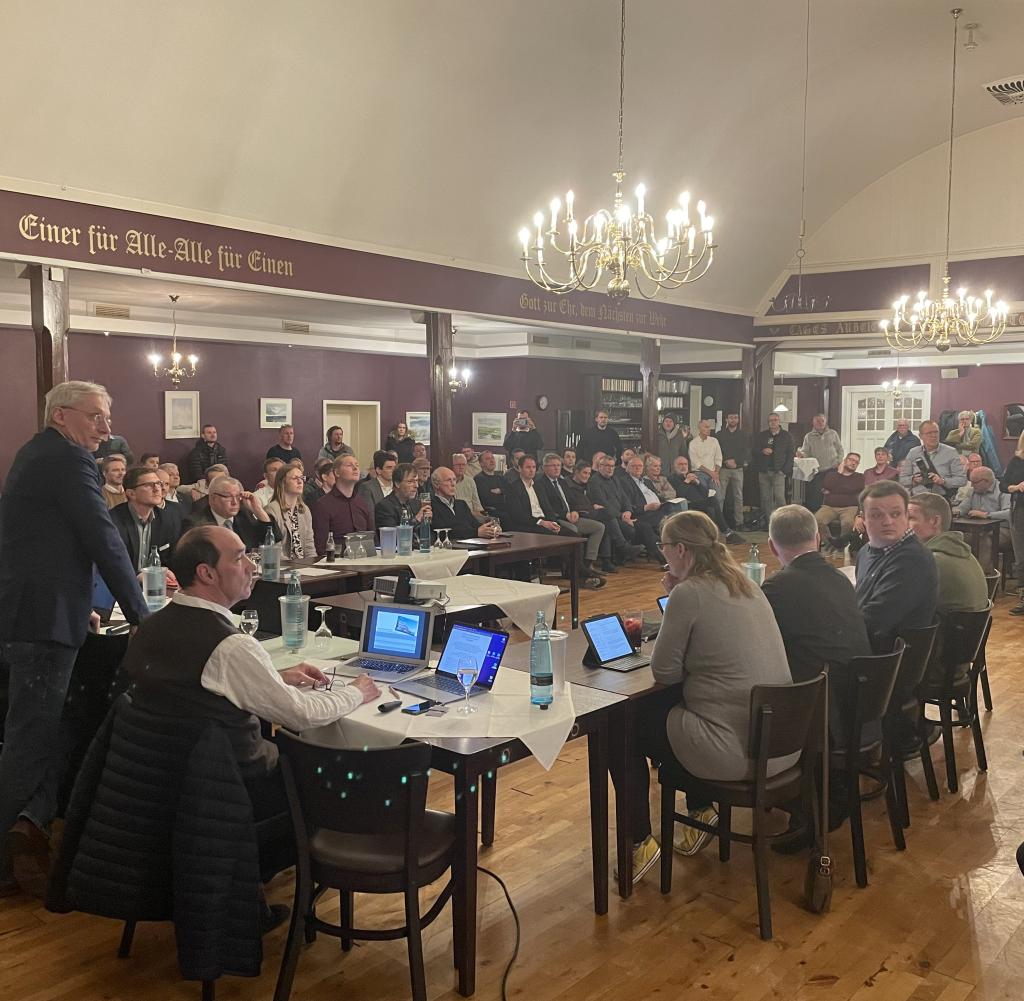MWith a vote of 4:3, the local council of the 280-person village of Norderwöhrden in Schleswig-Holstein voted in favor of building a battery factory in the Dithmarschen district on Monday evening. This means that the heart project of Kiel’s head of government Daniel Günther (CDU) and the green Federal Minister of Economics Robert Habeck can be implemented.
The Federal Ministry of Economics was highly committed over the years and held weekly discussions with those involved. The Kiel State Chancellery did persuasion work on site until the very end. Subsidies and investment promises were made to an extent previously unknown in Schleswig-Holstein.
The EU Commission also helped and gave the green light for German state aid almost at the last moment. In the end, however, the local council of the 280-inhabitant town of Norderwöhren in Dithmarschen had the last word on one of the most important northern German settlement projects of the past decades.
With a narrow majority, the committee decided on the first major development plan in the history of the village on Monday evening and at the same time approved in the final instance the construction of a battery factory at the gates of the Dithmarscher district town of Heide, which is currently worth 4.5 billion euros. The Swedish company Northvolt wants to create 3,000 jobs here within five and a half years. The state of Schleswig-Holstein expects up to a further 6,000 jobs to be created through subsequent settlements, including by supplier companies.
It is a project of the century for the federal state, which was awarded the contract by the Swedes because of the sufficient amount of renewable energy available here – and is now hoping for an industrialization boost for the structurally weak west coast of Schleswig-Holstein, which has so far been dominated primarily by agriculture and tourism .
For the federal government, which is responsible for two thirds of the total 1.3 billion euros in subsidies, the battery project represents a spark of hope on the way to the climate-friendly restructuring of the German economy that it has always advocated.
Under point 3, citizens’ question time, two skeptical people from Norderwöhrden have their say
Such big words cannot be heard on this Monday evening in the packed, more than 100-year-old hall of the “Oldenwöhrden” country inn, where the Norderwöhrden local council is holding what it considers to be a historic meeting. Weddings, company parties and the annual fire brigade ball are usually held here. There have not yet been any local council meetings in which decisions worth billions are made.
The local council of the 280-person village of Norderwöhrden – appeal “to conscience”
Source: Ulrich Exner
Mayor Kay Evers, who like all members of the local council belongs to the Free Voters’ Association of Norderwöhrden, leads through the agenda businesslike, sober and quick. Under point 3, Citizens’ Question Time, two skeptical people from Norderwöhrden have the floor, reminding them that the Heider area is a rural region and appealing to “the conscience” of the community representatives.
However, the vast majority of residents present do not report that evening. The applause that follows the two votes due on the settlement project indicates that the majority is more behind the project and therefore behind the local council’s decision. The committee itself is no longer conducting a debate about the pros and cons of the project, about the opportunities and risks of this once-in-a-century decision. The arguments have been sufficiently exchanged over the past two and a half years since the Northvolt plans became known – controversially, but in a binding, objective tone, as both sides repeatedly emphasize. The result of the vote is expected and as announced in advance of the decision.
Four votes for, three votes against. That’s enough to finally approve the billion-dollar investment that Prime Minister Günther and his former Environment Minister Habeck fought so hard for. Now it has to be successful, Mayor Evers appealed at the end of this meeting to the company Northvolt, but above all to the federal and state governments. “We need your support.” Evers announces that the Norderwöhrden local council will continue to “keep an eye on those involved” in the future.
How seriously the small parliament took the decision on the billion-dollar battery factory project was previously shown, among other things, by the fact that two of the nine members of the committee were neither allowed to take part in the crucial meeting nor in the vote. They were considered biased. The reason, as one of the two described it before the meeting, was that his aunt did not want to sell her property to Northvolt. As a result, the Swedes have to make do with less space to build the battery factory than originally planned.
The Dithmarschen district hopes for more than 12,000 new residents
Battery cells for up to one million motor vehicles are to be built every year on the now 110-hectare area east of the A23 motorway and federal highway 5. The company currently has 70 different job descriptions for some of the necessary jobs already advertised. The plants to be supplied include BMW and VW, which is one of Northvolt’s larger shareholders. The first construction phase of the Dithmarscher battery factory is scheduled to go into operation in 2026.
Until then, the state of Schleswig-Holstein, the Dithmarschen district, the district town of Heide, which is close to the factory site, and its surrounding communities will still face considerable challenges. In addition to direct funding, the authorities have made numerous other promises to the company, its employees and also its citizens, which must be fulfilled with the Northvolt settlement. Significant investments in Dithmarschen’s transport infrastructure are necessary, as are the construction of numerous apartments for employees and the creation of additional school and daycare places. A separate rail connection for the battery factory is also planned, as is the modernization and acceleration of the railway line between Heide and Hamburg, which is also required by Northvolt.
The bottom line is that the Dithmarschen district is expecting more than 12,000 people to settle in the region with its current population of 134,000 by the end of the decade. A “great opportunity” for Dithmarschen, as District Administrator Stefan Mohrdieck (independent) puts it. But also an enormous challenge for a region where things have been rather comfortable in recent decades.
“That’s what the day brings” is WELT’s daily news podcast. The most important topic analyzed by WELT editors and the news of the day. Subscribe to the podcast at, among other places Spotify or Apple Podcasts and everywhere there are podcasts.



